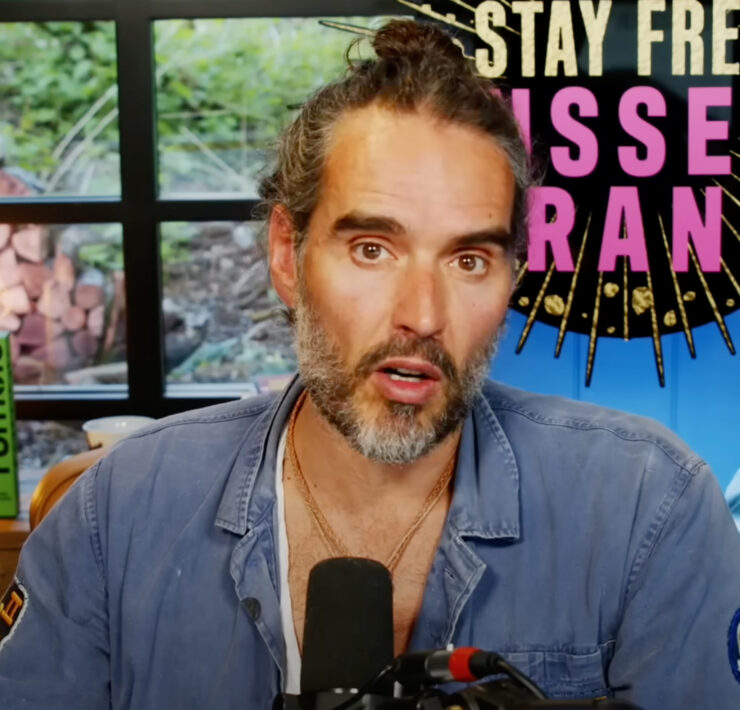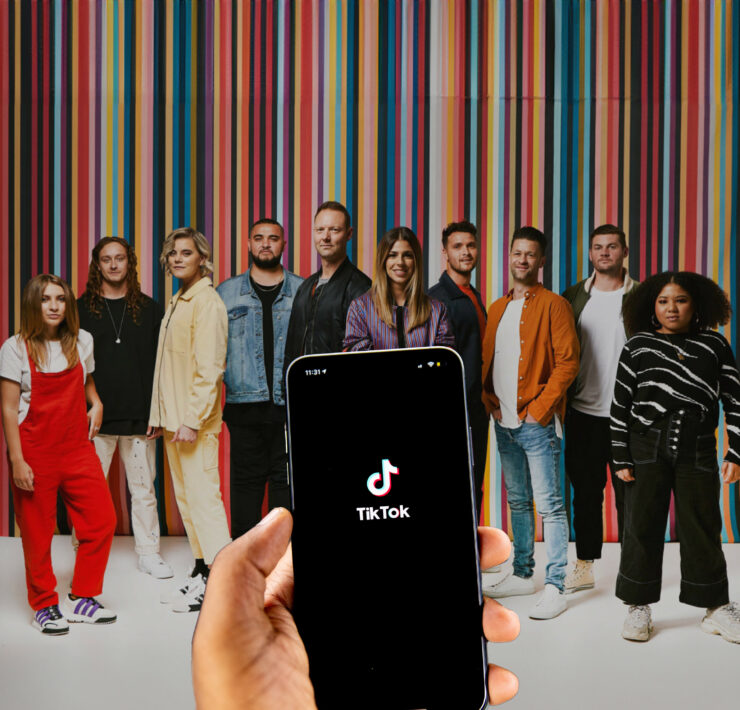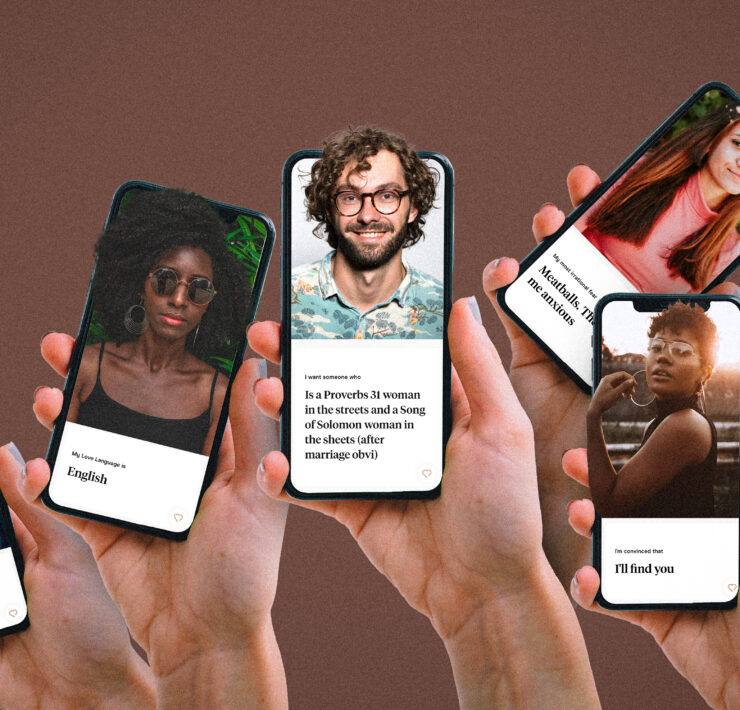“Social distancing” is poor phrase for what we’re going through right now. What it means is good — people should be physically distancing themselves to protect each other from COVID-19. But socially, we need to be closer than ever — lovingly pouring into each other through whatever safe means we can. That can mean Zoom, backyards or just regular group messages, just so long as it’s happening. But for obvious reasons, it’s probably not happening as frequently or easily as it did in the Before Times. That’s why you need to be intentional about who you’re hanging out with. You need to keep your social circles diverse.
Long gone are the days of the junior high lunchroom—where kids seemed to be divided at each table according to fashion aesthetic, athletic involvement or degree of personal hygiene. And though we may have outlived the era of punks vs. jocks food fights, the truth is that many of us have maintained a similar homogeny in our friendships as we venture into adulthood. If we went back to the junior high lunchroom today, would we be similarly clustered? Would we see all the urban gardening hipsters sitting together, with white-collar professionals and new moms at their own tables?
Of course, it’s second nature to gravitate toward those who share the same passions and interests. We tend to click with people who are like us—birds of a feather, and all that.
Yet the problem with defaulting to doppleganger friendships is that shared interests can only take a friendship so far. They can even stop short at companionships of convenience that mask a lack of true intimacy. For intimacy, in fact, has less to do with shared interests and more to do with shared vulnerability, and above all, a commitment to growth. The best friendships are birthed from a desire to engage at a deeper level … to challenge one another, to grow individually and collectively, and to be willing to learn from one another.
It’s a beautiful image, but also certainly a tall order. And it means that if we want to break beyond our standard bubble to seek deeper opportunities, we’re going to have to be intentional about it.
Take inventory of your inner circle. Does everyone look, talk and think like you? If so, maybe it’s time to branch out. There’s no surefire formula for creating community, but there are few kinds of friendships you might be missing in your life—and that you might want to pursue.
1. Someone Who is Older—and Wiser—Than You
It’s one thing to wish you had better habits, more self-discipline or refined character. It’s another thing to find those qualities personified in someone you respect—and follow them as a real-life model. This is not a friend you idolize or envy, rather, it’s someone who is one or two life stages ahead of you and can call back to you tips for the journey.
Mentor friends, like no one else, can help you set your own bar higher. You may not share occupations or hobbies, but this person’s character is aspirational for you. The best mentor relationships involve enough vulnerability to see that person as a “whole person”—someone worthy of emulating but not devoid of flaws.
Take stock of the people in your life and ask yourself who embodies the character traits that you would like to improve in yourself. Looking to be more content? Hoping to put more joy in your life? Wanting to be a more patient parent or supportive spouse? Wishing you could improve in your spiritual maturity? Think of people you know who are living out your goals, and approach them about the possibility of being in a mentor relationship.
2. Someone Who Is Younger Than You
If having a mentor to look up to can improve your character, being a mentor for someone else can challenge you to do the same—from the opposite end of the spectrum.
There’s no bigger motivator to be more careful in your steps than having a constant shadow. When a friend is looking to you as a living example, you will be challenged to live better—that is, to live a life that is worthy of imitation.
Psychologist Erik Erikson describes the developmental task of adulthood as “generativity vs. stagnation.” His theory is that the fulfillment we derive from helping others helps us maintain our own sense of purpose, and is an integral element of personal growth. On the other hand, if we don’t invest in others, we stunt both our personal potential and the opportunity to influence someone else for the better.
The bottom line is that you have something to give. As a mentor, you get to speak meaningfully into someone’s life, advise them against making the mistakes you did and allow the relationship to sharpen yourself in the process as well.
3. Someone Who Has a Different Home Culture Than You
There are few better ways to broaden your horizons than to be in community with people of different cultural backgrounds than yourself.
Cross-cultural friendships stretch us outside our limited vantage point as we seek to understand someone else’s unique customs, values and traditions. Such friendships are mutually beneficial. It allows those of us steeped in American culture to reconsider some of our default societal norms and values, and maybe even adapt some new ways of engaging with the world. It also makes us more empathetic to global issues when we have friends from various backgrounds. At the same time, those of us who are new to American culture can benefit from a sincere friend who can help them navigate the changes and challenges inherent to acclimating to a new place. It’s equally important to delve honestly into sensitive conversation topics such as racism, immigration and cultural differences, in order to dialogue and learn from each other.
Editor and writer Deidra Riggs cultivates cross-cultural friendships through a group of women dedicated to just that. “We call ourselves ICU,” she says, “which means Increasing Cultural Understanding; it also means ‘intensive care unit’ because we believe addressing these issues is critical for the Body of Christ; and it means ‘I see you.’” In addition to serving as common ground for friends of different cultures, age groups, worldviews and political viewpoints, Riggs says, “These women also serve as mentors for me.”
4. Someone Who Holds a Different Worldview
We naturally develop friendships with others who affirm our convictions—whether in terms of religion, politics, moral ethics or any other thought arenas where our opinions come passionately forward.
But when you only surround ourselves with a chorus of people who nod and amen at every turn of the conversation, you begin to lose touch with people from other walks of life. It’s easy to make straw men and stereotypes of people who hold opposing views, but when “those other people” are your trusted friends, it’s harder to dismiss their ideas. Instead, you’ll be pushed to listen more honestly and grapple with these differences in the context of a relationship. And not only that, but having friends with whom you hold clashing views can lead to spirited conversations that would have never happened in like-minded community.
David Henson, a postulant for Episcopal priesthood and blogger at Patheos.com—committed to interfaith dialogue—believes that everyone needs a friend who is an atheist. “It is a reminder that morality isn’t confined to the realms of the religious and that humans don’t need faith to be good, moral agents in the world,” he says. “It is a constant reminder to question one’s assumptions … My friends who are atheists don’t just make me a better Christian, they make me a better human.”
5. Someone Just Next Door
While it’s great to seek out certain kinds of new friends, don’t overlook the potential friends who might already be in your life. Who do you interact with on a weekly, if not daily, basis?
Whether a neighbor, a barista at your favorite coffee shop, or a fellow commuter on the train to work, instead of averting eye contact and keeping necessary interaction efficient, consider who you might (safely!) engage in a deeper relationship. At first, you might think the only thing you have in common is a zip code, but proximity can be a powerful force in friendship.
While there are many benefits to diversifying our friendships, the ultimate reason is that it teaches us to love others like He did—unconditionally and indiscriminately. And when we love others not as “projects” or potential converts or friends in high places, but with the love Jesus modeled, our circle of friends begins to look less like the segregated cafeteria of days gone past, and more like the Kingdom.
This article has been updated from an original version that ran in 2013.
























